General election: Leaders tour country in final appeal for votes
- Published
- comments
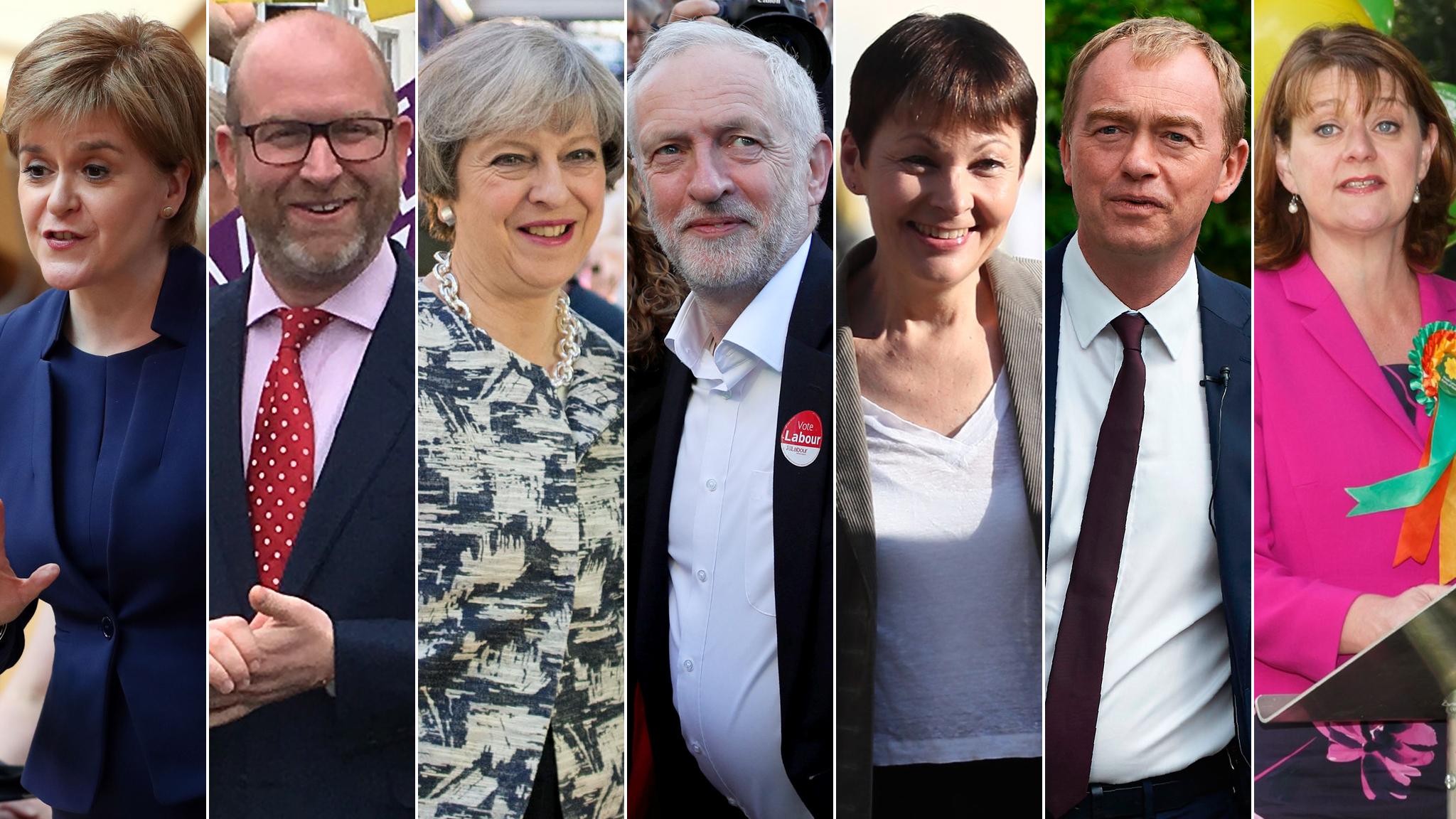
Theresa May and Jeremy Corbyn are stressing core themes as they and other party leaders criss-cross the UK in a last push for general election votes.
The Tory leader said she was the only person who could "deliver for Britain" and negotiate the right Brexit deal.
Warning of "five more years of Tory austerity", Labour's leader promised more spending on health and education.
The Lib Dems are focusing on Remain-voting target seats while UKIP says only it can stop Brexit "backsliding".
In Scotland, the SNP leader Nicola Sturgeon has warned that a vote for Labour risks "handing the keys of No 10" to Theresa May, while leaders in Wales and Northern Ireland are also making their last pitch for votes.
After a week dominated by security issues since the terror attack in London, the prime minister returned to her central message on Brexit - the reason she gave for calling Thursday's election 50 days ago.
Mrs May said that money which has until now been spent on EU projects could deliver "huge benefits" across the UK after its withdrawal, due in 2019.
Mrs May says there are challenges ahead
In an eve of poll interview with BBC political editor Laura Kuenssberg, Mrs May said: "Brexit is the basis of everything. We need to secure our economy for the future, we need to ensure we are getting more jobs, better paid jobs, more opportunities for young people in this country. We can do that if we get the Brexit negotiations right."
She also stressed the big differences between her and Mr Corbyn on a range of issues, including response to the terror threat: "I support the police shooting to kill terrorists. Jeremy Corbyn does not."
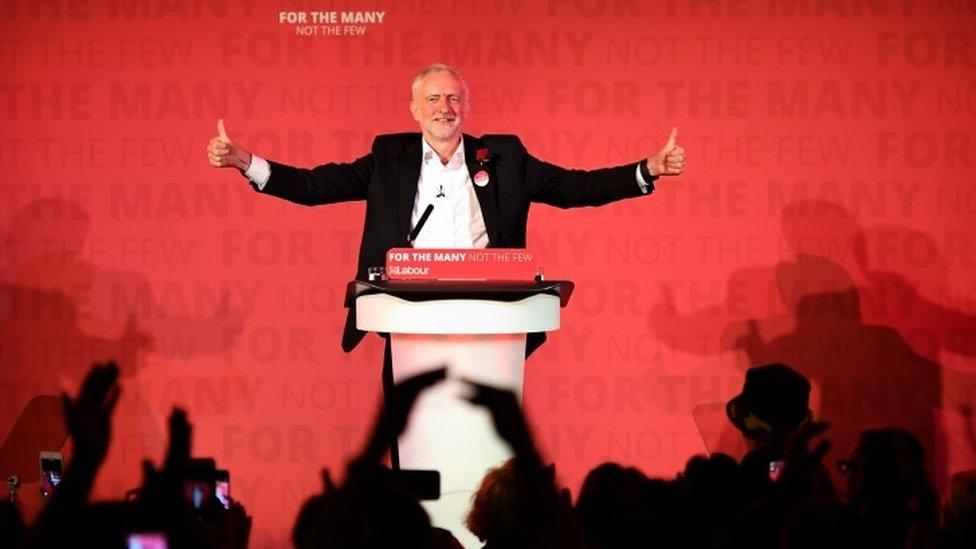
Jeremy Corbyn addressing supporters at his final rally in Islington
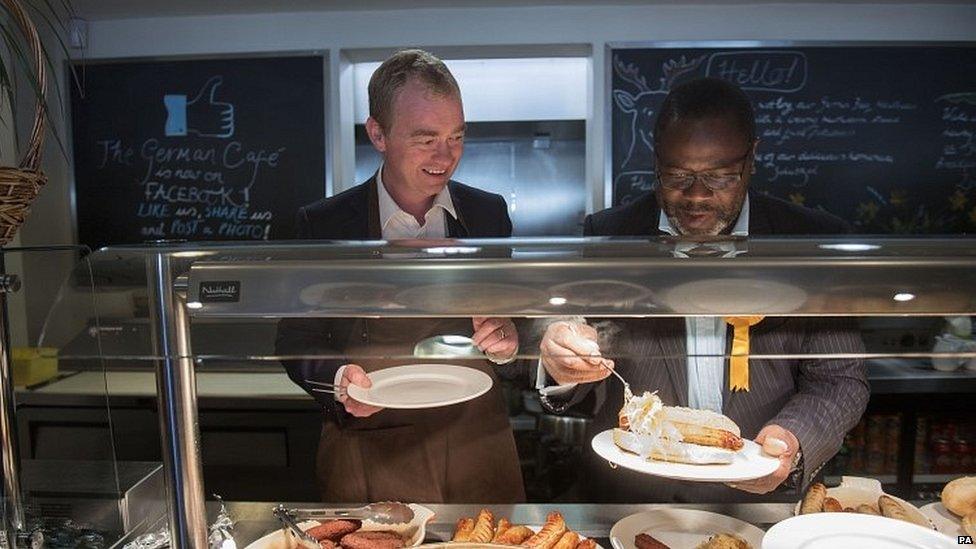
Lib Dem leader Tim Farron found time for a spot of breakfast in Solihull
The PM's day started in London, where she chatted to butchers at Smithfield meat market in the City. She was accompanied by her husband, Philip, who was also at her side as she visited Southampton and Norwich.
Speaking in Norwich, she said a Labour government would "wreck the economy" while she wanted to build a country that was "more confident in itself and in which no community was left behind".
Mrs May, who will end the day in the West Midlands, said that negotiations with the EU would begin in less than a fortnight and the question for voters was about who they trusted to deliver the best deal for Britain.
But emphasising Labour's plan to invest billions on public services, to be paid for by higher taxes on business and top earners, Mr Corbyn said the NHS could not afford "five more years of underfunding, understaffing and privatisation".
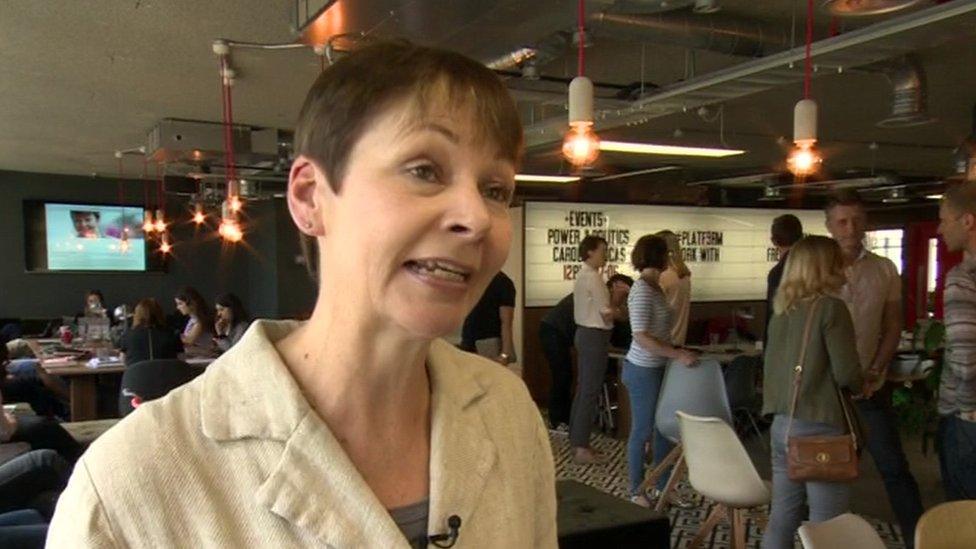
Green Party leader Caroline Lucas says she wants the final say on Brexit to "come back" to the people
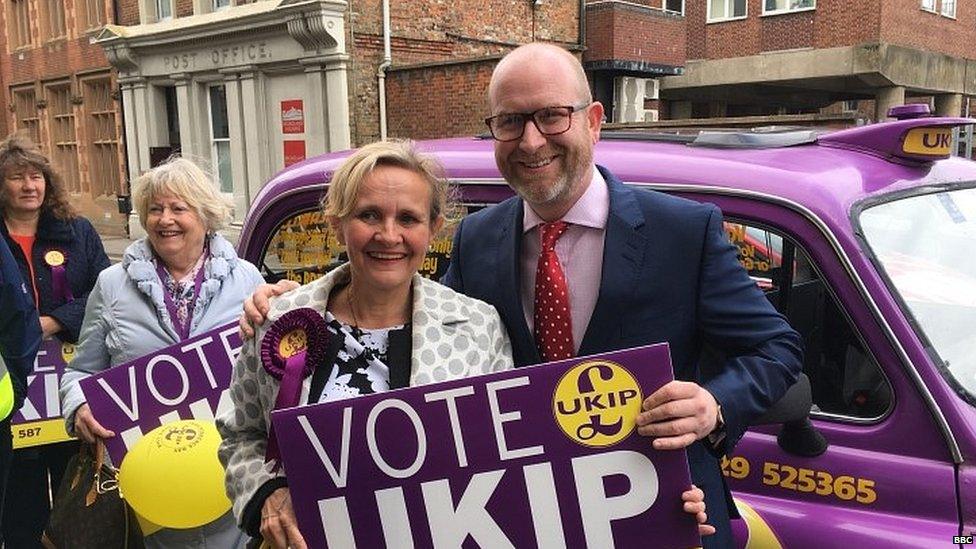
The UKIP leader has been talking about the boost that Brexit could bring
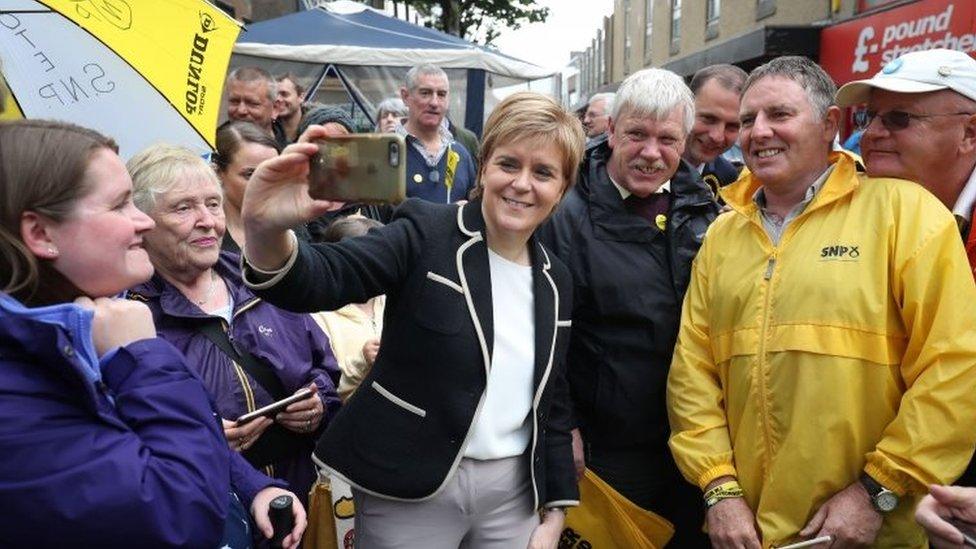
The SNP's Nicola Sturgeon has been touring Scotland during the campaign
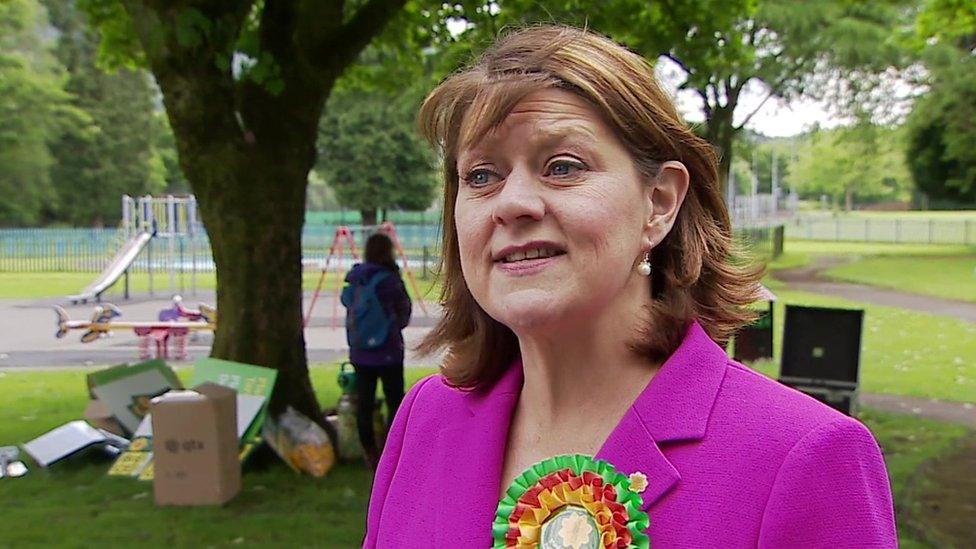
Leanne Wood said a strong Plaid Cymru team was needed at Westminster
Addressing activists in Runcorn, he said the election was "all about the kind of society we want to live in", saying: "Never before has there been a clearer choice between the parties... a choice quite simply between hope and fear."
He said: "The re-election of a Theresa May government will mean five more years of cuts to the NHS, five more years of increases in waiting times, five more years of more and more people waiting for social care and five more years of austerity."
Instead, Mr Corbyn - who has also addressed crowds in Glasgow and Colwyn Bay - urged people to reject this "arid road" and back Labour's "positive and inclusive" vision.
On Wednesday evening, he told supporters in Harrow that commentators who had written off Labour weeks ago "may just have made a very big mistake".
Rounding off his campaign with a rally in Islington, he said Labour was now the "new political mainstream".
The Labour leader has had to reshuffle his top team on the eve of the election after announcing shadow home secretary Diane Abbott would be taking a break because of ill health.
Ms Abbott pulled out of a number of media engagements on Tuesday and the BBC's political editor, Laura Kuenssberg, said Lyn Brown, the shadow police minister and candidate for West Ham, had been asked to stand in for her indefinitely.
Meanwhile, Lib Dem leader Tim Farron has urged Labour supporters to "send a message" to Theresa May on issues such as Brexit and social care by supporting his party in seats where they are the Tories' main challengers.
Endorsing tactical voting on campaign stops in Solihull, St Albans and Twickenham, he said: "This was undoubtedly an election called in the interests of the Conservative Party and it hasn't quite turned out the way she expected because Theresa May's made some very poor decisions, that have shown weakness and a level of heartlessness."
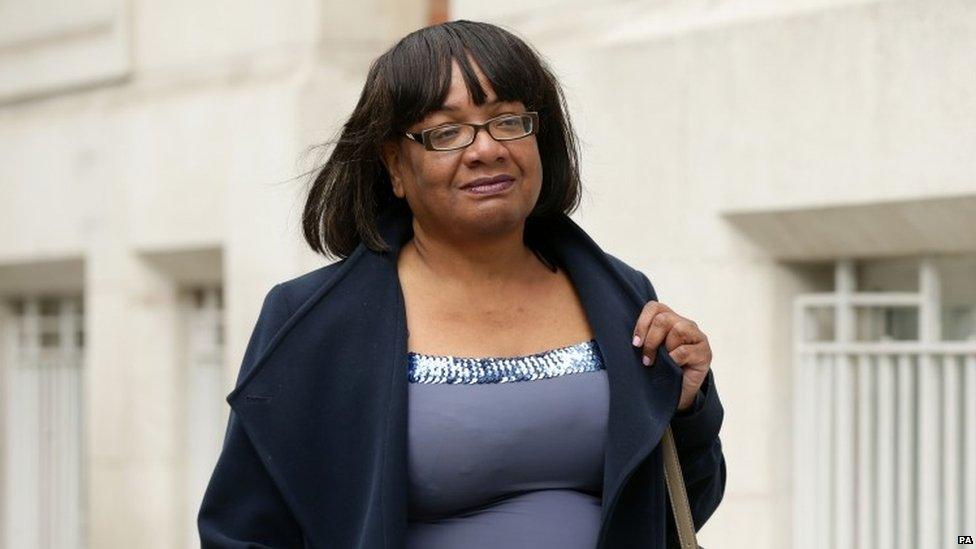
The shadow home secretary is taking a break from her duties because of illness
Former Business Secretary Vince Cable said his party offered an alternative to the continuing austerity proposed by the Conservatives and Jeremy Corbyn's "Venezuelan-style socialism".
Campaigning in Edinburgh, the Scottish first minister Nicola Sturgeon said re-electing SNP MPs would ensure Scotland retained a "strong voice" in Westminster and deny the Conservatives the "crushing majority" they were expecting.
"People in Scotland should not risk waking up to Tory MPs who can hand Theresa May a majority and then rubber stamp anything she wants," she said.
"Instead, voters should take the opportunity to stand up for Scotland's schools, hospitals, public services, pensioners and jobs by rejecting the Tories' extreme and dangerous plans."
Do you remember Brenda and these other moments from the general election campaign?
At their final election rally, the Green Party called on people to "vote with their hearts".
"I'm calling on people across the UK to vote not just for the MP they want, but the kind of country they want," co-leader Jonathan Bartley said, emphasising his party's opposition to the Trident nuclear deterrent and support for a universal weekly basic income.
Visiting Great Yarmouth, UKIP leader Paul Nuttall said only his party could keep the pressure on the next government to deliver a "real Brexit" - with lower immigration, exclusive fishing rights for British trawlers within UK territorial waters and no "divorce bill".
And Plaid Cymru leader Leanne Wood said a re-elected Conservative government with an increased majority would pose a "threat" to Wales and her party would stand up for Welsh interests in the run-up to Brexit and afterwards.